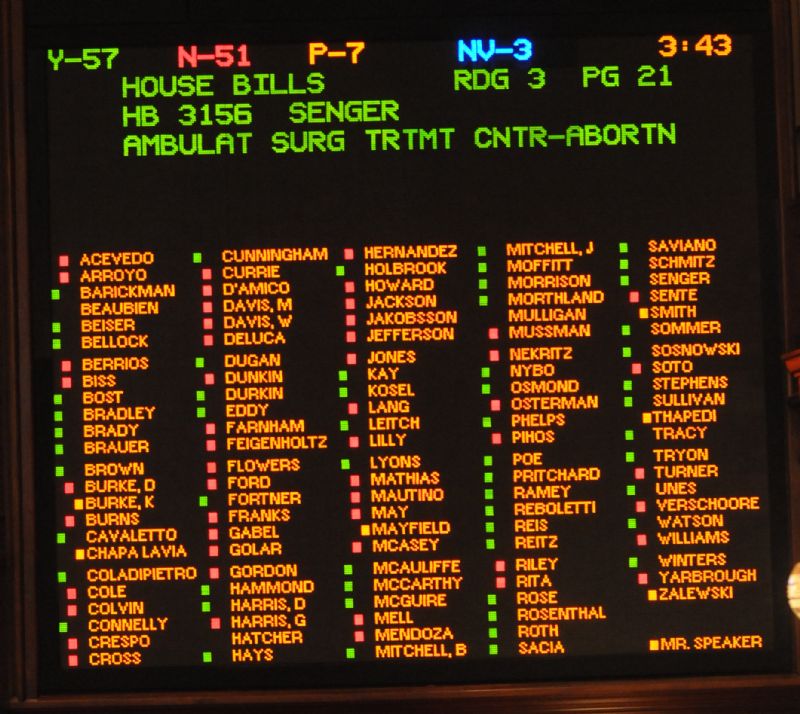
How did they vote?
As I reported in my email update yesterday, HB 3156, sponsored by State Representative Darlene Senger (R-Naperville) fell just 3 votes short of passage on Wednesday, but may get another vote today or Friday. The bill received 57 “yea” votes, 51 “nay” votes with 7 voting “present.”
This bill would amend the Ambulatory Surgical Treatment Center Act to require abortion clinics that perform more than 50 abortions a year to meet basic safety regulations similar to other outpatient treatment centers. (See the original IFI E-Alert HERE.)
Look at the picture below to see the unofficial record of how your state representative voted. Please consider calling the offices of the seven who voted “present” and those who voted “nay” to encourage them to support HB 3156. They are listed below. Ask them to ensure abortion clinics are held to the highest health standard. This is about safety protections for women.
Rep. Kelly Burke (D-Evergreen Park)
(217) 782-0515Rep. Linda Chapa LaVia (D-Aurora)
(217) 558-1002Rep. Rita Mayfield (D-Waukeegan)
(217) 558-1012Rep. Michael J. Zalewsk (D-Summit)
(217) 782-5280Rep. Derrick Smith (D-Chicago)
(217) 782-8077Rep. Andre M. Thapedi (D-Chicago)
(217) 782-1702Speaker Michael Madigan (D-Chicago)
(217) 782-5350
Take ACTION: We need a flood of calls, emails and faxes today and tomorrow — especially in the districts identified above if we hope to secure the 60 votes needed to pass this bill onto the Illinois Senate. Call the Capitol switchboard at (217) 782-2000 and ask to be transferred to your state representative to urge him/her to vote in favor of HB 3156. Or you can click HERE to send an email or a fax to your state representative.
This bill would amend the Ambulatory Surgical Treatment Center Act to require abortion clinics that perform more than 50 abortions a year to meet basic safety regulations similar to other outpatient treatment centers.
Please take a few minutes NOW to contact your State Representative: Message: Support HB-3156 to ensure abortion clinics are held to the highest safety standards. Are women considered less worthy of safety protections?

































